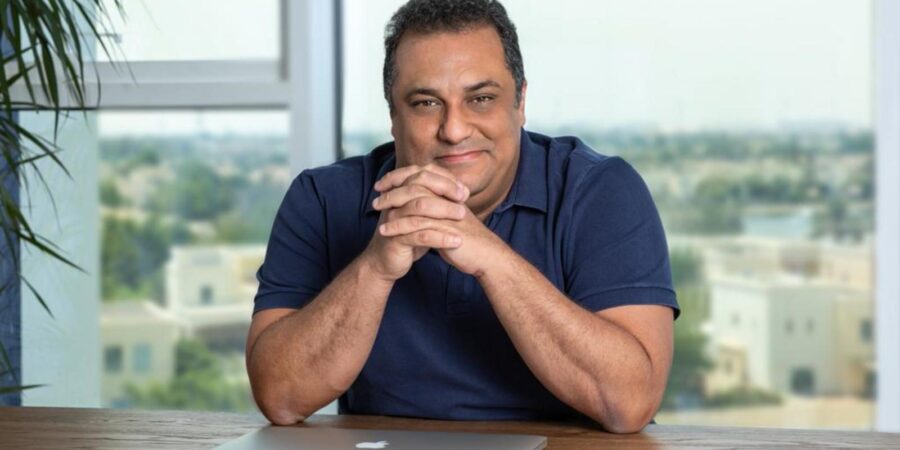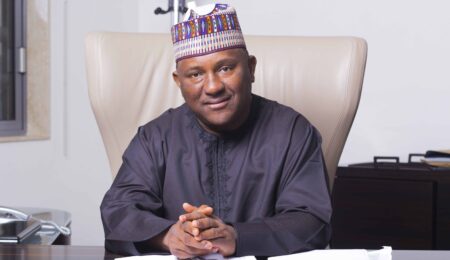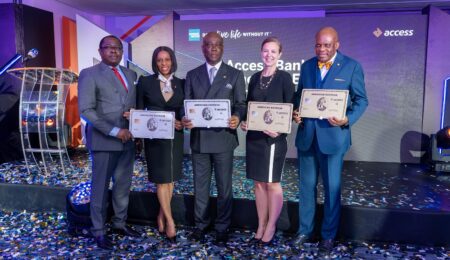What is African tech’s biggest challenge? This question seems so simple, yet is often missed.
Every time you read an article talking about the prospects of African tech, there’s a section mentioning its challenges. These “challenges” sections often look so similar that they start to sound cliche after a while. They are not wrong, but most times, also aren’t exhaustive. While some challenges are common across the continent, others are unique to certain regions and countries. And the fact that this context is often missing shows one thing: Africa has deep information asymmetry. Many Africans know too little about what happens outside their borders. We don’t even know the true size of our digital economy; all we rely on is Google’s $180 billion projection.
Most of the media’s coverage of African tech borders on a few countries in Sub-Saharan Africa. And that brings us to what the biggest challenge is: imbalance. Every challenge you can think of, from funding gaps to education, internet access and so on, can be lumped into this word. Tech’s growth in Africa has been slower than most because the scales are tipped against certain demographics. This is why inclusion is more than a buzzword in Africa. It’s a deliberate attempt to even the scales and consequently speed up the growth of Africa’s digital economy.
In this interview with Basil Moftah, General Partner at Nclude (an Egypt-based investment firm focused on fintech innovation and financial inclusion), we discussed the state of the MENA region’s fintech market and how his firm is playing a part in levelling the scales for both founders and consumers.
VA: Tell us about yourself and a bit about your background in tech
BM: I started my career in Venture Capital. In 1997, I joined something called the Greenhouse Fund. It was a CDC for Reuters that invested in internet technologies in the dot-com era. I had worked on transactions like Yahoo, Netscape, Verizon, Webex and a few others. It was a very successful 400 million dollar fund that had over 35% IRR return for its investors. That got me into the world of startups and learning about entrepreneurship. It was a very interesting time because the internet was just coming online.
Then, I did my MBA at Harvard, and after that ran different businesses for Thomson Reuters. I ran a business in Europe, emerging markets and a global business out of Washington DC called IP and Science.
After that, I left and returned to Dubai. I’m originally from Egypt, but my family was living in Dubai. So I came back and set up a couple of funds with global ventures and eventually set up Nclude, which is where I’m currently managing to focus on financial inclusion in Egypt.
VA: Interesting. So what does your firm do?
BM: As many people know, Africa is still very much underbanked or unbanked, not only on the retail side but also on the SME side. Egypt, being one of the largest populations, has a significant issue with credit card penetration. At least a couple of years back, it was below 20% both on the debit and credit card sides. That means very few people were using banks and doing a lot of cash transactions. For SMEs, accepting electronic payment was a “nice-to-have,” not a “must-have” because of the fact that so few people used cards.
On the back of that Nclude got established by the three major banks in Egypt: the National Bank of Egypt, Banque Misr and Banque du Caire under the auspices of the Central Bank of Egypt. The idea was to really do a concentrated effort on fintech in Egypt. This touches companies based here or expanding from the Middle East and other parts of Africa into Egypt, as long as they are dealing with financial inclusion in particular. Our focus is on things like payments, SME lending, retail lending, fractional real estate, and supply chain working capital finance.
Nice! So what has been your experience building companies in the MENA region? What drew you there and what unique challenges and opportunities have you seen?
The MENA region is made up of about 300 million people. The most interesting thing about it is that there is a unifying language: Arabic. But at the end of the day, it is still 22 countries and each country has its regulatory and legal regimes with different levels of rich and poor. There are countries as rich as Qatar and Saudi Arabia in the region and then there are very poor countries in the region like Egypt and Algeria. So it gives a wide opportunity for founders and startups to really figure out how they want to build their businesses. So, in some way, it’s one of the more challenging regions because of that scope.
Building companies in Egypt has been an interesting journey. I think it has a very well-educated talent pool. There are a lot of people coming into the startup world who are fascinated by the potential of these opportunities. Given 105 million people in Egypt, I think we’re seeing a lot of creative ideas and enthusiasm because it is such a young population.
On the flip side, one of the biggest challenges is the lack of capital. There isn’t that much money going into venture capital. I think it is 1/20 of what goes into countries in Europe and 1/50 of what goes into the United States on a GDP level in terms of venture capital. So, frankly speaking, the lack of capital is one of the biggest challenges we see. Not the lack of opportunities. That’s what makes being a venture capitalist really interesting.
You’ve been around in VC for a long time. How has this industry evolved, and what are the key trends and opportunities you have seen in the MENA region?
I can answer that in a number of dimensions. I think we’re currently entering the third wave of Venture Capital in the region. The first wave was made by early entrepreneurs who, despite the lack of capital, were able to bootstrap and build resilient businesses solving mainly B2C issues like e-commerce and last-mile food delivery. The second wave was when we saw quite a bit of money going into companies solving wider issues, including fintech, ed-tech and health tech. But the founders were very early on in their journey.
This third phase we’re living in is a really interesting one. We’re seeing quite a significant drop in the capital, but also a lot of entrepreneurs who have paid their dues and are now ready to scale globally. I think the third phase is where we’re going to see one of the most interesting companies because these are entrepreneurs who have been in the market for five to eight years. Some of them may be on their second or third startup, so they have sold and have experience exiting their business. They have much more battle-hardened skin, and now they are not only able to raise money but also to take their business beyond solving local problems but regional and even global.
VA: Interesting times, indeed. How does your firm evaluate potential investment opportunities?
Our core strategy is around financial inclusion, so we look at fintech and fintech-enabled businesses; that is the first criterion. However, that still gives us a wide spectrum to look at. So we look at entrepreneurs who are solving real problems faced by underbanked and unbanked businesses and individuals in Egypt and around the region. By “real problems,” I’m talking of issues like remittances ( how does money flow between countries?), SME loans (How can they access loans? What is the credit scoring system used for companies that usually don’t have enough data or information about them?), salary advances (so many people live paycheck to paycheck and usually need money for urgent events).
Six out of eight of our entrepreneurs are Endeavour entrepreneurs, and four out of eight have built at least one business that they have sold in the past. So we are more particular about second-time entrepreneurs who have experience building in very difficult circumstances and understand how to raise capital, hire a team, build technology and handle challenges.
We tend to be Series A or B investors. So while we have done one or two earlier stages of pre-series A deals, it’s not likely we cut your first check. That’s what gives us the opportunity to evaluate multiple companies in particular sectors before making our decision.

So what’s your idea of fairness and equity?
This is the question that takes us the most time to think about in every investment we make. At the end of the day, I think the values around affordability and accessibility are really important. I think it is important that companies are offering products that are accessible. We look at things like who is being addressed with this product. Is it a small or broad group/segment of the population? And obviously, we have a preference for broad groups. Is it addressing a segment that doesn’t have access to banking services whether it’s payment, savings, investments, or all of those things that either businesses and/or individuals should be able to access? What becomes of accessibility is how easy it is to distribute a product. One of my favourite companies in my portfolio is Lucky, where you can set up and get yourself a credit card effectively in about 15-20 minutes, which is unheard of in Egypt. This is something that used to take days and weeks and was very inaccessible to a large portion of the population. Today, if you’re in a shopping mall in Egypt you can stop by, give your ID, and sign a couple of forms. By the time you are done with your grocery shopping you have your new card with your new limit credit on it so they made it accessible to a very large portion.
The second criterion as I mentioned is affordability. Is this something that is helping or enhancing the lives of people and the way they access financial services or products? or is it something that is very unaffordable or out of reach? For example, Khazna, another one of our portfolio companies, does salary advances. Most countries across the world that do salary advance charge a percentage or a fee that is calculated based on how much of your salary you are pulling earlier. But what they do is charge a few fixed dollars. As a result, it is becoming a very competitive brand, even versus the cost of a bank transfer from your friend. This is how I view fairness and equity: making things affordable and accessible to everyone that needs it.
What are some of the biggest challenges and opportunities for fintech startups in Egypt and the MENA region?
I think the biggest challenge and opportunity is that these last 12 months have been economically challenging for Egypt as has been for a lot of emerging-market countries around the world. This means there is a high inflation rate and there is devaluation in currency. It has been a challenging economic time compared to 10 years before that, but at the same time, it is an opportunity because Egypt has become one of the best places to build startups from the cost and affordability points of view, especially if you’re doing it and reaching out to other countries in the region. Many of the startups in Egypt are now expanding to Saudi Arabia, United Arab Emirates, and various countries whether it is Kenya, Morocco, Nigeria or South Africa. So I am excited about this next phase. Not because it is easy, but because it has made these companies and entrepreneurs go regional and global with their business faster and sooner and Nclude is doing a lot. We are in the process of having a venture partner who is going to focus on international expansion and has experience working with global fintech on their international expansion. We are making a lot of introductions to companies and investors in Saudi Arabia and the United Arab Emirates where there is a lot of excitement about technology and so these companies extend their runways, build better products and expand regionally. This, I think, creates value at the end of the day.
What is the key role fintech plays in promoting financial inclusion and reducing inequality, especially in Egypt?
From my experience, there are many ideas that I see where the real challenge is whether the consumer or the business that is going to use this technology at the end of the day is going to be able to understand how to benefit from it. So in some ways, fintech is playing a very important role in the education of the wider Society about the role of money and the ethical management of money. And more importantly, understanding how to access those products. That is easy to talk about; taking a loan or taking a microloan or whatever it might be is simple for you and me to understand. But actually, there is a greater responsibility on fintechs the CEOs and the board of those companies to make sure that the product ends up in the right and be used for the right purpose and not create other problems in society where people get too much in debt or can’t afford to pay back. As for me, financial inclusion is the story about educating society on the most important commodity in the world which is money by making it available in a sensible ethical way.





